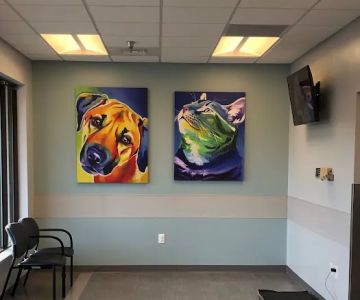How Many Years Does It Take to Become a Veterinary Surgeon?
- 1. Understanding the Education Path
- 2. Gaining Experience Before Veterinary School
- 3. Completing Your Veterinary Degree
- 4. Specializations and Further Training
- 5. Real-Life Stories from Veterinary Surgeons
1. Understanding the Education Path
Becoming a veterinary surgeon is a rewarding yet long journey. If you’re asking yourself, “How many years does it take to become a veterinary surgeon?”, the answer isn’t simple—it depends on several factors, including where you study and whether you specialize in a specific field. But on average, it takes about 7 to 9 years to become a fully qualified veterinary surgeon.
The first stage in this journey is completing an undergraduate degree. This typically takes around 3 to 4 years, during which students study biology, chemistry, and animal science. This foundational education is crucial, as it prepares you for the challenges you'll face in veterinary school.
2. Gaining Experience Before Veterinary School
Before even entering veterinary school, it’s essential to gain hands-on experience. Most veterinary schools require applicants to have significant practical experience working with animals. This could be through volunteering at animal shelters, working in pet clinics, or assisting veterinarians in a practice setting.
I personally remember the excitement and fulfillment of working with animals during my early days volunteering at a local animal shelter. It not only gave me the practical experience I needed, but it also solidified my passion for becoming a veterinary surgeon. It’s also worth noting that the more experience you have, the more competitive you’ll be when applying to veterinary schools.

7918 Land O' Lakes Blvd #104, Land O' Lakes, FL 34638, USA
See Details3. Completing Your Veterinary Degree
Once accepted into a veterinary program, the next step is to complete the veterinary degree. This typically takes another 4 years. During this time, you’ll engage in intensive coursework and practical training, including surgeries, diagnostics, and clinical rotations. It’s a rigorous program designed to equip you with the skills necessary to become a skilled and knowledgeable veterinary surgeon.
The first two years are typically focused on learning the basic science and theory behind veterinary medicine. In the final two years, you’ll rotate through different specialties like surgery, internal medicine, and emergency care, which helps you gain hands-on experience in real clinical settings. It’s intense, but it's essential for becoming a competent and successful veterinary surgeon.
4. Specializations and Further Training
While the general path to becoming a veterinary surgeon is about 7 to 9 years, those who wish to specialize in a specific field, such as surgery, dermatology, or cardiology, may need additional training. After completing the general veterinary degree, you may choose to pursue a residency program in your area of interest. These programs typically last an additional 3 to 5 years.
Specializing in a certain field allows veterinary surgeons to become experts in specific areas of animal health, making them highly sought after in their respective fields. However, it’s important to keep in mind that this additional training means a longer time commitment, which could stretch the overall duration of your career path to over 12 years.
5. Real-Life Stories from Veterinary Surgeons
In speaking with various veterinary surgeons about their journey, I’ve learned that the process of becoming a veterinary surgeon is not only challenging but incredibly rewarding. One surgeon shared how they initially struggled with balancing academic demands and hands-on training but found the final years in the clinic to be the most rewarding as they honed their skills on real animals and cases.
Another veterinary surgeon mentioned how their experience volunteering with exotic animals in the early years of their education helped them secure a spot in a competitive veterinary program. These personal stories demonstrate that the journey to becoming a veterinary surgeon, while long, is filled with enriching experiences and learning opportunities that make the hard work worthwhile.
Overall, the journey to becoming a veterinary surgeon requires passion, commitment, and dedication. Whether you’re in your first year of college or preparing for veterinary school, every step brings you closer to achieving your dream of becoming a qualified veterinary surgeon. And for those wondering how many years it takes to become a veterinary surgeon—while it may take some time, it’s certainly a journey that’s worth every moment of effort.










